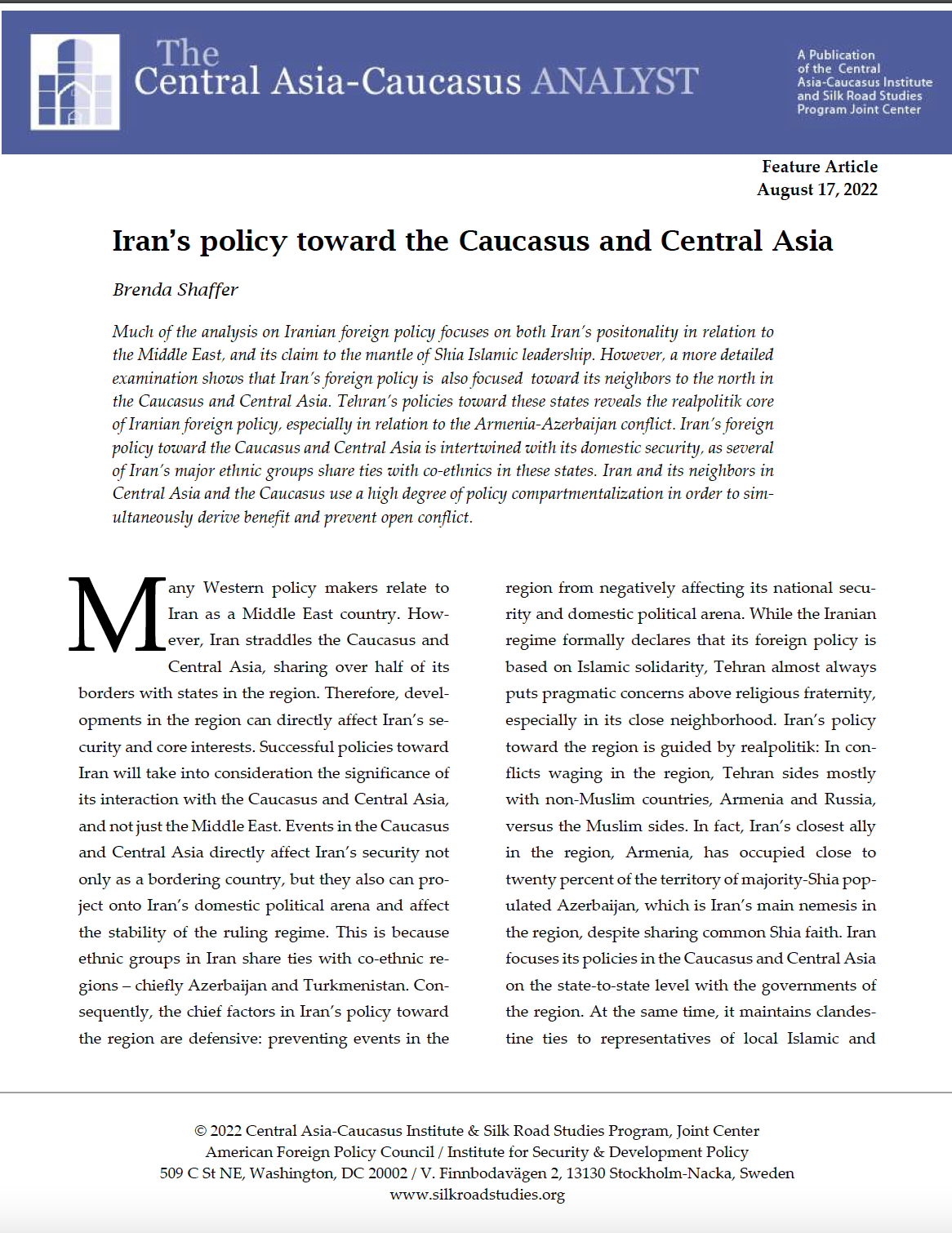Iran’s policy toward the Caucasus and Central Asia
By Brenda Shaffer
August 17, 2022
Much of the analysis on Iranian foreign policy focuses on both Iran’s positonality in relation to the Middle East, and its claim to the mantle of Shia Islamic leadership. However, a more detailed examination shows that Iran’s foreign policy is also focused toward its neighbors to the north in the Caucasus and Central Asia. Tehran’s policies toward these states reveals the realpolitik core of Iranian foreign policy, especially in relation to the Armenia-Azerbaijan conflict. Iran’s foreign policy toward the Caucasus and Central Asia is intertwined with its domestic security, as several of Iran’s major ethnic groups share ties with co-ethnics in these states. Iran and its neighbors in Central Asia and the Caucasus use a high degree of policy compartmentalization in order to simultaneously derive benefit and prevent open conflict.
Azerbaijan and the Syrian anti-terror coalition
By Zaur Shiriyev
April 12th, 2016, The CACI Analyst
Saudi Arabia’s attempt to persuade Azerbaijan to join its anti-terror coalition comprised of Islamic countries has created problems for Baku due to fierce opposition to this coalition from Iran and Russia. Azerbaijan’s leadership subsequently attended the international donor conference on Syria’s future, seeking to become part of an international platform that will limit the country’s involvement to humanitarian affairs. However, while Azerbaijan’s interests and capacity to engage in international discussions about Syria are limited, the involvement of Azerbaijani fighters in the terrorist organization calling itself the Islamic State (ISIS) may require Baku to join some kind of international anti-terrorism coalition in the future, aimed at supporting intelligence sharing and cooperation with the aim of preventing recruitment of Azerbaijani jihadists.




